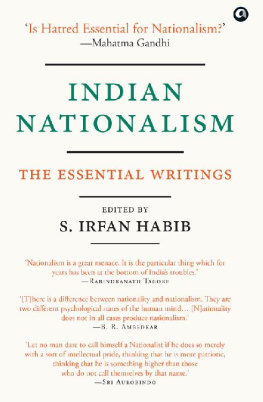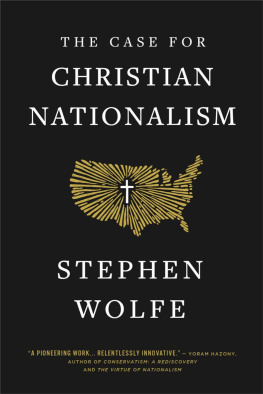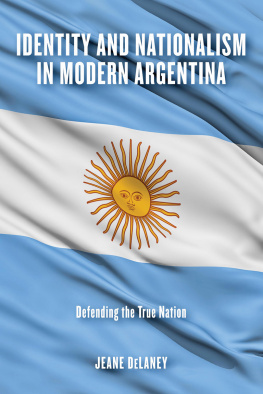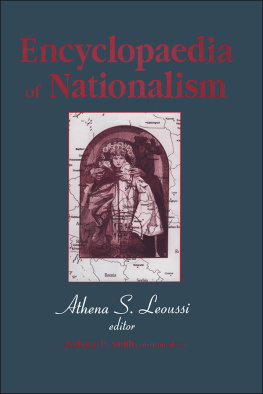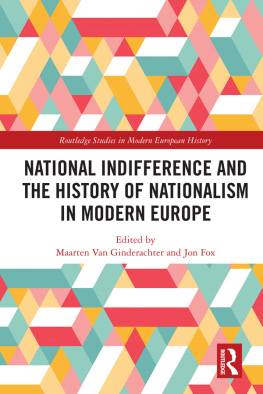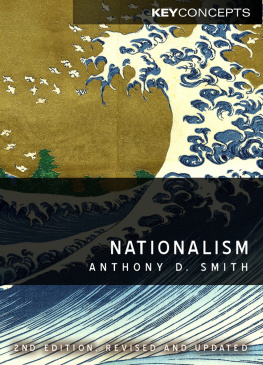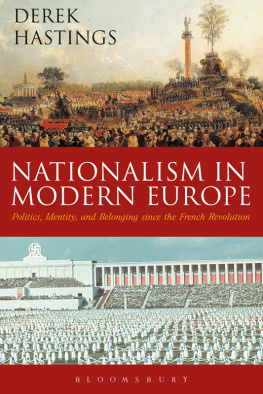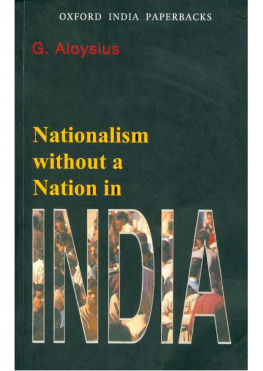INDIAN NATIONALISM
Also by S. Irfan Habib
Domesticating Modern Science: A Social History of
Science and Culture in Colonial India (with Dhruv Raina)
To Make the Deaf Hear: Ideology and Programme of
Bhagat Singh and His Comrades
Jihad or Ijtihad? Religious Orthodoxy and
Modern Science in Contemporary Islam
Situating the History of Science: Dialogues with Joseph Needham
(edited with Dhruv Raina)
ALEPH BOOK COMPANY
An independent publishing firm
promoted by Rupa Publications India
First published in India in 2017
by Aleph Book Company
7/16 Ansari Road, Daryaganj
New Delhi 110 002
Anthology Copyright Aleph Book Company 2017
Introduction Copyright S. Irfan Habib 2017
Copyright for the individual pieces and translations vests in the respective authors and translators.
) are an extension of the copyright page.
While every effort has been made to trace copyright holders and obtain permission, this has not been possible in all cases; any omissions brought to our attention will be remedied in future editions.
All rights reserved.
No part of this publication may be reproduced, transmitted, or stored in a retrieval system, in any form or by any means, without permission in writing from Aleph Book Company.
ISBN: 978-93-86021-05-2
1 3 5 7 9 10 8 6 4 2
CONTENTS
A NOTE ON THE BOOK
We live in times of hyper-nationalism, amidst the shrieks of cultural homogenization. The frenzy of the self-proclaimed nationalists and mono-culturalists is threatening to tear apart our social fabric. A binary has trapped usyou are a nationalist or an anti-national, depending upon your attitude towards the state and its politics. This xenophobic nationalism is alien to us as Indians, as over the years we have cultivated a pluralistic, inclusive and relaxed nationalism, which evolved around a consensus during the freedom struggle, based on certain fundamental democratic values. This rigid nationalism is not new, it did exist, but on the margins, amongst an aggrieved group of people, who envisioned themselves as victims of history and who had an unreal, skewed and glorified view of our past. They had identified their enemies as Muslims, communists and foreigners (mostly from the West). Today secular liberals have been added to this list. Not just in India, this hyper-nationalistic stance is a global trend, from Trump to Brexit to several extreme right-wing groups in Europe that are growing on the hatred for the other.
The ugliest form of nationalism and its misuse as a political tool in India was manifested in the Jawaharlal Nehru University crisis last year, which continues to simmer even now. Several students were slammed with sedition charges for raising anti-national slogans and the university itself was dubbed an institution that nurtured and harboured anti-national elements. For several days, sit-ins were organized by the teachers and students of JNU where scholars from different disciplines raised provocative questions on nationalism. This debate finally engulfed the whole nation. Most recently the Vice-Chancellor has asked that an army tank be installed on campus to instil nationalism among the students.
This brand of nationalism continues to be debated and questioned on several fronts. I contributed by writing a few articles on the idea of India and Indian nationalism as conceived by our iconic nationalists like Subhas Chandra Bose and Bhagat Singh. The idea to do a larger project on this theme came from my publishers. An anthology on nationalism was planned, in conversation with Pujitha Krishnan of Aleph, who came to me with a book proposal. After some discussion, we added culture to it as the two are inseparable, and this anthology tackles these two themes.
I cannot claim that this collection of essential writings is exhaustive and covers all views and opinions on the subject. However, it makes an attempt to include as many founding voices on nationalism as possible in a single volume. These voices, as the selections here will show, defined nationalism from diverse vantage points, yet almost all converged to agree that Indian nationalism was inclusive and took pride in its pluralism. Most of the iconic nationalists included here are used and misused very often in our ongoing political slugfest. The original writings of many of them are either not accessible or used selectively. I hope this collection will help in clarifying the idea of the Indian nation, nationalism and culture from the early decades of the last century.
I must thank the Nehru Memorial Museum and Library (NMML), New Delhi, and the India International Centre (IIC) library for most of the selections included here. I am grateful to IIC for the facilities they offered as most of the research and writing was done there during the past year. I am also indebted to my friend, Benjamin Zachariah, for his comments and suggestions. I had some useful discussions with sociologist and friend Dipankar Gupta over several tea and lunch breaks in the IIC lounge.
Finally, I am grateful to my family, particularly Atiya, my wife, a truer nationalist than her I do not know.
S. Irfan Habib
August 2017
New Delhi
INTRODUCTION
Why do we need a book about Indian nationalism when we already have a surfeit of conversation around it? That is precisely why. We need to debate it because it has overwhelmed us completely in interesting and scary ways. Every day, demands are being made on us to prove our love for our country in myriad ways: by chanting slogans, being vocal about our patriotism, following certain religions, etc. And anyone who dares to question these demands is facilely accused of being anti-national and an enemy of India. Before we all get carried away by this hollow jingoism, let us try to understand the history of nationalism in our country and the various forms in which it has existed.
For Indians of my age, born just a few years after independence, nationalism was not instilled or demanded through diktat, it was something that just existed in the ambience. We never felt the need to define what made us Indian despite the bloodied Partition we had just experienced in the name of communitarian nationalism. But today there are those who demand that we proclaim our Indianness loudly and often. Not Indianness in its varied hues, but in a manner that is acceptable to a narrowly defined focus. To comprehend the ongoing ballistic nationalism it may be worthwhile to delve into the origins of nationalism as it was originally perceived by those who fought for the formation of the country. It was an inclusive nationalism that was consciously adopted all through our freedom struggle and carried forward to build a new pluralistic independent India. Our nationalism and our idea of Indian culture can be gleaned through the authoritative writings of the men and women who defined it for us. Many of them were political thinkers and politicians, while others were political activists who were grounded in the daily humdrum of the anti-colonial struggle. Scientists and cultural activists also contributed to the idea of the Indian nation, nationalism and culture. This engagement with the notion of nationalism and culture began with a liberal-moderate nationalism, which then moved to a phase with religion at the centre, and passed through several other phases before finally culminating in a consensus based on inclusive nationalism.

